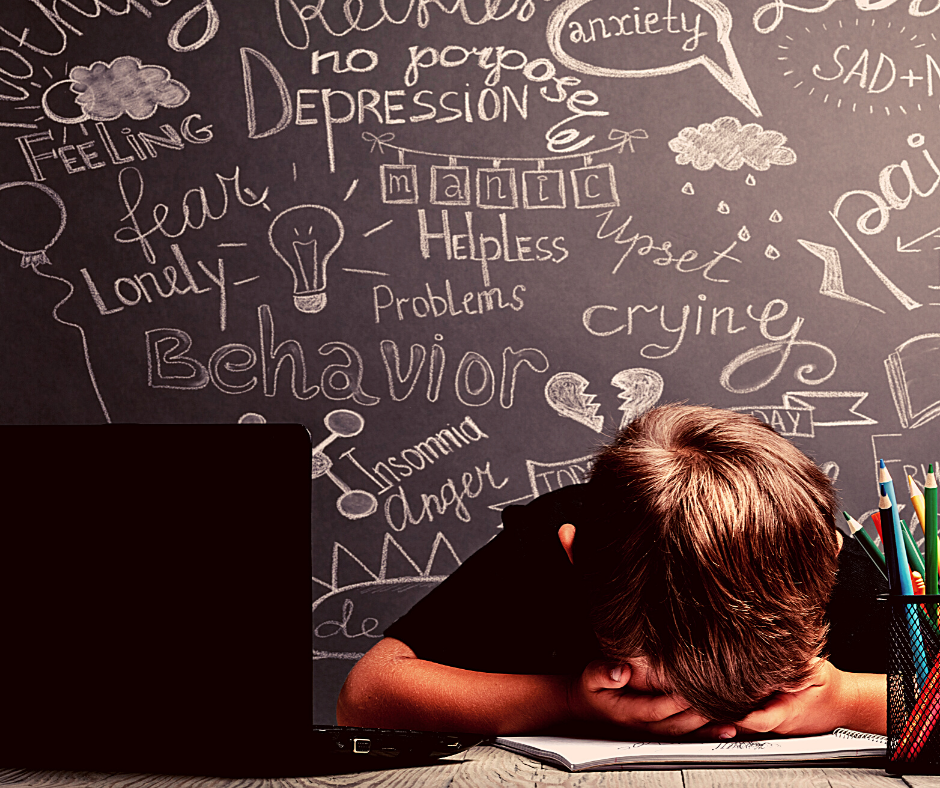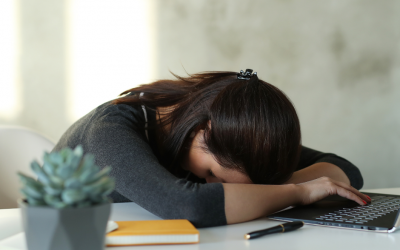Being in the classroom has never been more of a challenge for children or their teachers. The events of 2020 have only conspired to build new barriers to learning, and experts are predicting that more and more people will succumb to mental health issues. Mental health in education is of vital importance.
Sitting before every educator and walking around every staffroom, peers and pupils alike are carrying a plethora of mental health issues. The matter of mental health in education is very real. There are issues all around us, not least our own. Teaching is famously an honourable but extremely mentally strenuous career – 100 hour weeks, challenging behaviour, government pressures – the weight of the world and the future sit across educators’ shoulders.
Oftsed, parents and SLTs all push and drive educators to keep a watchful eye on the emotional welfare of pupils. Educators’ duty of care includes safeguarding their pupils against the pitfalls of mental health issues. You are required to educate your classes on safe mental health practices, practical skills to maintain their mental and emotional health and how to understand mental health issues – but what do you do if you don’t know it yourself? Mental health in education is important, but how is your education in mental health?

In a study by Education Support, one in five teachers said they had experienced panic attacks. If you’re fortunate enough to have never experienced a panic attack, the Mayoclinic explains it like this – ‘A panic attack is a sudden episode of intense fear that triggers severe physical reactions when there is no real danger or apparent cause.’ What does that mean in practice?
Don’t tell me not to panic
Imagine suddenly feeling a crushing in your chest, like you’d imagine a heart attack to feel. Your breath becoming hard to catch, as if each time you breath out a constrictor tightens. And feeling a film of sweat suddenly cover you whilst you simultaneously feel inferno hot and glacially cold. Imagine feeling the walls of the room closing in. Feeling nauseated but not actually like you will vomit, more like the nausea is a wave coming down a river towards you but never quite reaching you.
Sound horrible? They are, and 20% of teachers have experienced them. And it’s not hard to see why given the sheer onslaught nature of teaching. It can at times feel a lot like you are in the trenches of the Somme and your daily life if a constant bombardment of shells. No doubt it can be difficult safeguarding your own mental health in education, let alone looking after the mental health of others!
Heck, at the time of writing the Government haven’t decided how they plan for teachers to administer the summative assessments for GCSEs and A-levels in only 3 months time. And during lockdown, how many new directives have been released late at night so SLTs are sitting waiting on tenterhooks with pupils and staff facing nail biting evenings after a hard day trying to get Kyle to even fake paying attention on Zoom? It’s no wonder then that 56% of teachers and educators suffer insomnia or difficulties sleeping.
The best of times, the worst of times
Did you know that teaching has consistently been rated the third most stressful job in the UK for over 10 years? If you’re a teaching reading this now you’re probably nodding your head in sadly-knowing sagacity. If you’re a parent you may have been somewhat dismissive prior to lockdown about how stressful teaching is, but now you’ve spent months trying desperately to keep your children to a desk you have a new appreciation of the difficulties that teachers face.

It’s not just behind the teachers’ desk though. The levels are stress in schools are faced throughout the strata of them. Senior leaders struggle to tackle demands for achievement whilst having increasingly sparse budgets to utilise. And the pupils themselves? On top of being children, or worse the hormonal hell of adolescence, they have exam stresses, bullying and harassment and the entire plethora of negative influences that they must struggle to navigate.
Think about the kids
It’s no wonder that 77% of teachers felt that their mental health was affecting the progress of their students. It’s not just a worry that your personal mental health in education can have an impact. We’ve previously written about some of the difficulties that teens face with their mental health and also about some of the challenges that arise around mental health in childhood.
The fact is that 10% of children having mental health issues is worrying. And that lifelong mental health issues can be embedded by the age of 14 is frightening. Caring for your own mental health is a challenge, but you are also part of the support system that is supposed to be able to assess, protect and assist in treating pupils’ mental health issues.
A 2014 UK government study found that social and emotional competencies have a greater impact upon academic attainment that standard IQ. Given the impact that the mental and emotional wellbeing of a pupil can have upon learning and attainment, it’s especially clear that mental health in education must be a clear focus.
So what can we do about it?

It is stressful enough being a teacher. Sometimes things like this, whilst they may be of vital importance, can serve to only exacerbate our own issues. How on earth can you be expected to facilitate improving mental health in education if your own mental health is suffering at the hands of overlong weeks, increasing external pressures, unmanageable workloads, increasingly difficult to manage behaviours and the whole gamut of other issues that consume you?
Well, most key will be training. Training which allows you the space to be introspective and understand yourself and your needs. And training that will show you how to spot the signs of mental health issues in those around you whilst arming you with the skills to begin to address and support those issues. Be it for yourself, your pupils or your peers, now truly is the time to take the step to becoming part of improving mental health in education.
If you are interested in the work that we do here at Mental Health West Midlands, please visit our contact us page. Whether you’re interested in becoming a Mental Health First-Aider or your keen to develop a basic understanding of mental health issues for all of your staff, we are here to help.
We can help
Based in Wolverhampton, Mental Health Midlands is a first-class training provider supporting businesses in Wolverhampton, Birmingham, Walsall and the Black Country. We provide recognised course in mental health such as two-day courses to become Mental Health First Aiders to basic entry level half day mental health courses to aid understanding of a misunderstood area. We help businesses to overcome mental health issues and break the stigmas around mental health in the workplace.











